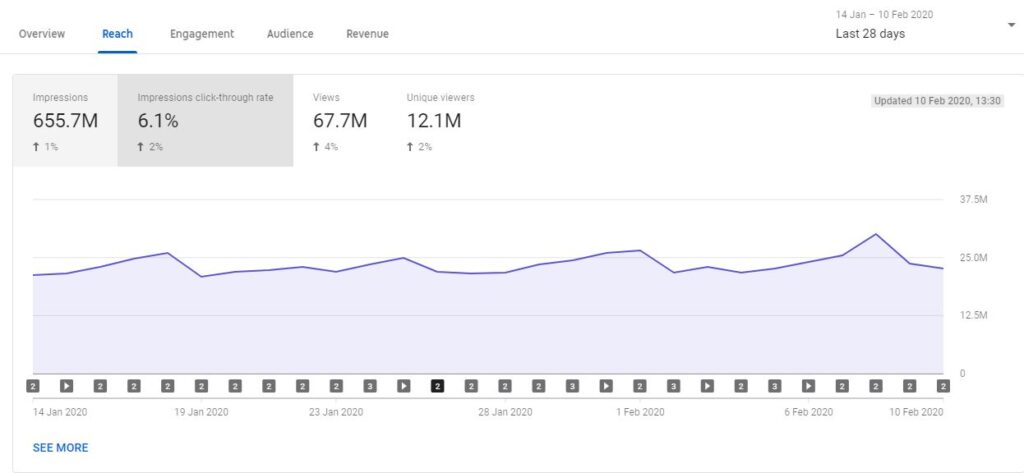How to Generate More Leads Through Referral Marketing?
How to Generate More Leads Through Referral Marketing? Referral marketing is a powerful strategy that can help businesses generate more leads and expand their customer base. with the help of the power of word-of-mouth recommendations & other remarketing tools, businesses can target their existing customer network. In this article, we will explore effective techniques and strategies to generate more leads through referral marketing.
1. Introduction
This is an effective way to generate top leads because people are more likely to rely on recommendations from someone they know. By implementing the right referral marketing strategies, businesses can significantly increase their lead generation efforts.
2. Understanding Referral Marketing
Referral marketing relies on the power of personal recommendations. It involves creating a systematic approach to encourage and track referrals from existing customers. The process typically includes providing incentives, simplifying the referral process, and monitoring the results. Referral marketing can work in both online and offline businesses, and it is a cost-effective tool to acquire new customers.
3. Setting Clear Goals
Before diving into a referral marketing campaign, it is essential to establish clear goals. These goals could include the number of referrals, the conversion rate from referrals, or the overall increase in leads. By setting measurable goals, businesses can better track and evaluate the success of their referral marketing efforts.
4. Identifying and Targeting the Right Customers
To generate valuable leads through referrals, it is crucial to identify and target the right customers. Businesses should focus on their most satisfied and loyal customers who are more likely to recommend their products or services. By understanding the demographics, interests, and preferences of their target audience, businesses can tailor their referral marketing campaigns to resonate with potential customers.
5. Incentivizing Referrals
Incentives play a significant role in motivating customers to refer others. Businesses can offer various incentives, such as discounts, exclusive offers, or rewards for successful referrals. The key is to provide incentives that are valuable and relevant to both the referrer and the referee. Incentive referrals are a win-win situation for businesses and engage customers to actively participate in the referral program.
6. Leveraging Social Media
Social media platforms provide an excellent opportunity to amplify referral marketing efforts. Businesses can use the power of social networks & reach a broader audience via sharing and engagement. Creating shareable content, running social media contests, and implementing referral campaigns specifically designed for social media platforms can significantly boost lead generation through referrals.
7. Creating a Seamless Referral Process
To increase the number of referrals, it is very complicated to make the referral process as seamless as possible. Businesses should provide clear instructions and easy-to-use referral mechanisms. This can include personalized referral links, email templates, or social sharing buttons. The simpler and more convenient the process, the more likely customers are to refer others.
8. Monitoring and Analyzing Referral Performance
To ensure the effectiveness of referral marketing campaigns, businesses need to monitor and analyze referral performance. Such as the number of referrals, conversion rates, and customer lifetime value will be key metrics for any business. Through this businesses can get insights into the success of their referral program. After this, we can use data to optimize strategies, identify areas for improvement, and refine targeting efforts.
9. Building Strong Relationships with Referral Sources
Building strong relationships with referral sources is crucial for long-term success in referral marketing. Businesses should prioritize maintaining open lines of communication, expressing gratitude for referrals, and providing exceptional customer experiences. By nurturing these relationships, businesses can establish a network of loyal advocates who will continue to refer others in the future.
10. Measuring and Tracking Success
Regularly measuring and tracking the success of referral marketing campaigns is vital. With Google Analytics tools and tracking software, businesses can get a fair idea of the ROI of their referral program. This information helps businesses identify the most effective referral sources, adjust their strategies accordingly, and allocate resources for optimal results.

11. Overcoming Challenges in Referral Marketing
Referral marketing, like any marketing strategy, comes with its challenges. This section will address common challenges businesses may face when implementing referral marketing campaigns and provide practical solutions to overcome them. By being aware of these challenges and having a plan to tackle them, businesses can optimize their referral marketing initiatives for better results.
Conclusion
Referral marketing is a powerful tool for businesses to generate more leads and expand their customer base. By implementing effective referral marketing strategies, setting clear goals, targeting the right customers, incentivizing referrals, leveraging social media, creating a seamless referral process, and building strong relationships with referral sources, businesses can unlock the potential of word-of-mouth marketing. Remember to measure and track the success of your referral program and continuously optimize your strategies for the best results.
FAQs (Frequently Asked Questions)
1. How long does it take to see results from a referral marketing campaign?
Such as the industry, target audience, and effectiveness of the campaign from a referral marketing can vary on various factors. However, businesses typically start seeing an increase in leads within a few weeks of launching a well-executed referral marketing program.
2. Can referral marketing work for small businesses?
Obviously! Referral marketing is beneficial for small businesses since it allows them to get into their existing customer base and strong bonding their relationships with loyal customers. By offering incentives and creating a streamlined referral process, small businesses can generate high-quality leads and grow their customer base.
3. Are there any legal considerations when implementing referral marketing?
Yes, it is essential to comply with legal guidelines when implementing referral marketing. Businesses should ensure that their referral program follows applicable laws and regulations, including disclosing any incentives offered for referrals. Consulting with legal professionals or seeking advice from marketing experts can help businesses navigate these considerations.
4. How can I encourage customers to refer others without sounding pushy?
To encourage customers to refer others without sounding pushy, focus on providing exceptional products or services and creating a positive customer experience. Offer incentives that provide value to both the referrer and the referee. Additionally, make the referral process simple and convenient, allowing customers to refer others voluntarily and without feeling pressured.
5. What are some creative ways to incentivize referrals?
There are several creative ways to incentivize referrals, such as offering exclusive
Businesses can also implement a tiered reward system, where customers receive increasing rewards for referring multiple individuals. The key is to provide incentives that align with the target audience’s interests and motivations.
In conclusion, referral marketing is a valuable strategy for businesses to generate more leads and expand their customer base. By implementing the outlined strategies and best practices, businesses can harness the power of personal recommendations and create a network of loyal advocates. Remember to track and analyze the performance of your referral marketing campaigns to optimize your results and continually improve your lead generation efforts.




